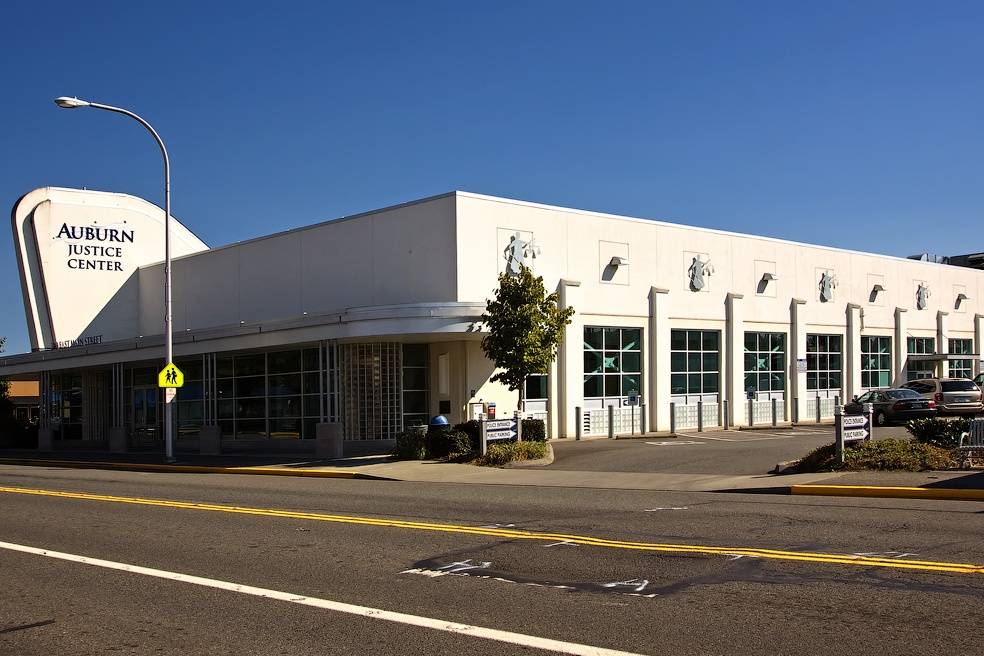Think of it: 4,302 traffic infractions, 109 non-traffic infractions, 200 driving-under-the-influence-and-physical-control offenses, 793 traffic misdemeanors, 2,075 non-traffic misdemeanors, and 3,697 parking infractions.
All 11,176 of those came before judges at King County District Court in Auburn for judgement in 2019, the last year for which the city of Auburn has complete records, and the last year untouched by the COVID-19 pandemic.
On Nov. 1, 2012, the city of Auburn entered into a contract King County District Court wherein the court agreed to provide adjudication of all infractions and misdemeanors committed within the city and to staff it with one to two judges, depending on the caseload.
In 2019, the court billed the city $1,684,129 for its services.
Today, with the current contract approaching its expiration date of Dec. 31, 2021, the Auburn City Council expects to vote on a number of minor modifications to the existing interlocal agreement at the Jan. 18 council meeting.
Candis Martinson, director of Human Resources and Risk Management for the city of Auburn, said the city won’t be alone.
That’s because King County District Court also contracts with the cities of Beaux Arts, Bellevue, Burien, Carnation, Covington, Duval, Kenmore, Redmond, Sammamish, Shoreline and Skykomish under the same agreement. Those cities will bring forward the same interlocal agreement for review and approval of their respective city councils within the next month.
The cities have been at work on the proposed interlocal agreement for the last year.
Among the suggested modifications, the new interlocal agreement offers its own termination date of Dec. 31, 2034, to coincide with judicial elections, as state law requires.
So, in the proposed interlocal agreement, the first term of the contract is for five years and there will be the option for two, four-year, automatic extensions, Martinson said.
King County District Court also provides public access in the cities of Auburn, Bellevue, Burien, Issaquah, Redmond, Shoreline and Vashon Island and at the King County Courthouse, the King County Jail and the Norm Maleng Regional Justice Center in Kent.
Auburn City Councilmember Yolanda Trout-Manuel wanted to know when the city’s long-talked about resource center and once-a-week community court, slated for the empty Sports Page tavern at 2802 Auburn Way North, would find its legs.
“Do you have a date picked?” Trout-Manuel asked Martinson.
Martinson said the orginal plan had been to go live with the community court sometime around the end of the first quarter of 2021, but the COVID-19 pandemic has delayed progress.
“We have started formulating and meeting with the various takeholders in the city and the district court’s therapeutic courts manager, Callista Welbaum,” Martinson said. Therapeutic courts work to reduce recidivism and enhance the likelihood of rehabilitation, to reduce child abuse and neglect, out-of-home placements of children, and termination of parental rights, among other goals.
Martinson said that Kent Hay, outreach program adminstrator for the city of Auburn, and Welbaum had worked together closely at the city of Redmond, which also contracts with King County District Court, and they are working on launching he Resource Center, which, she said, is going to provide resources not only to participants of the community court, but to the general community.
“There have been logistics on holding a virtual resource center, and they working out those bugs right now, and hopefully we’ll be able to report the actual go-live date soon,” Martinson said.
Plans for the Resource Center also call for the Auburn Food Bank to move from its present pad in the Burndale apartment complex on I Street into the tavern space, and the following:
■ Relocating the day center on I Street NE;
■ Moving the night shelter and bumping up its capacity from 30 beds to approximately 65 beds, with the added benefit of further expanding during bad weather;
■ Providing space for 20 or more service providers to be present and available when court is in session — that is, addiction resources, housing placement, mental health providers, employment services and more.
■ And when court is not in session, provide classroom, educational and meeting spaces and room for service providers to have temporary space on a regularly recurring schedule;
■ Providing a space for emergency food services and to enhance opportunities to make healthier food options more available; and
■ Providing ongoing space to a handful of community, social and/or human service providers that advances the mission of the hub and the individuals and families that rely upon those services.



